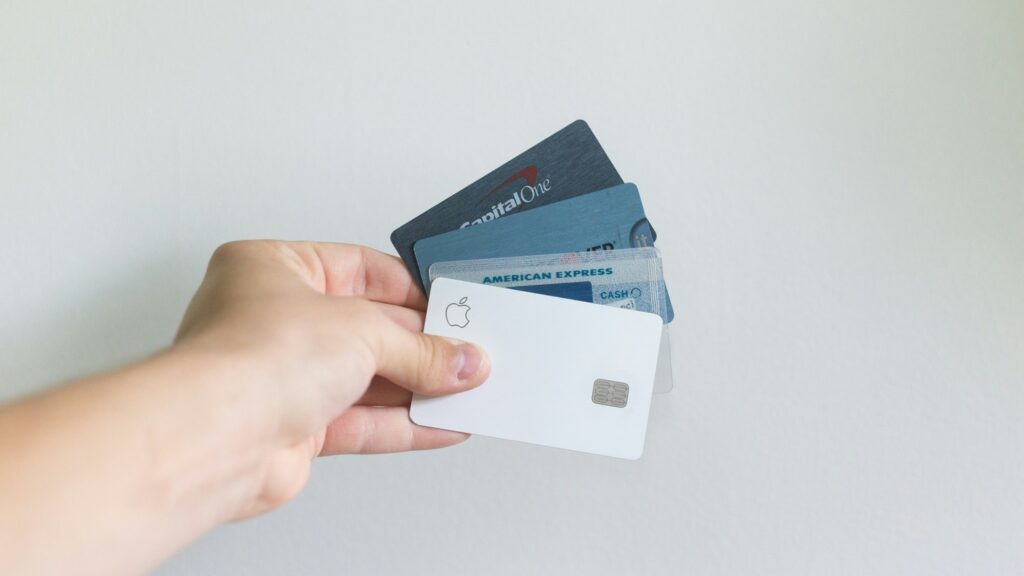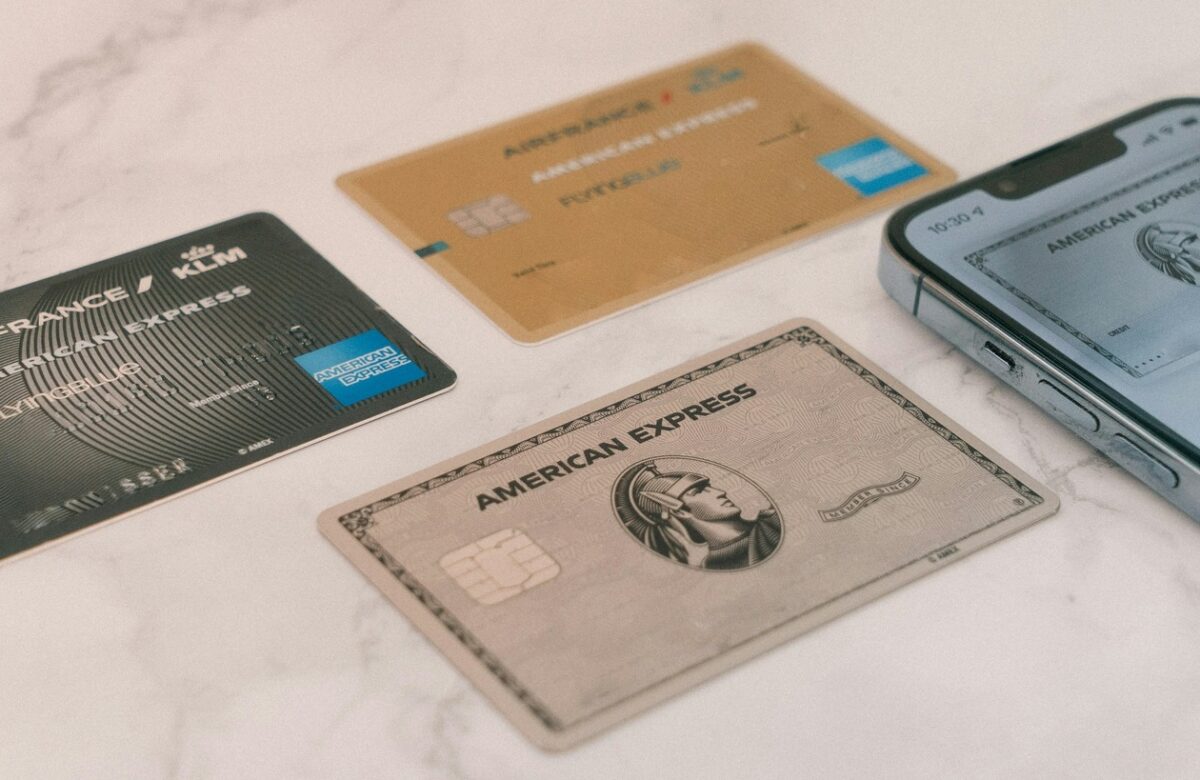
Credit Card Points for Beginners: The Complete 2024 Guide
- Credit Cards
- November 5, 2024
- 9 Comments
- 217
Welcome to Credit Card Points for Beginners: The Complete 2024 Guide. Imagine this: You’re stretching out in a lie-flat business class seat, sipping champagne at 35,000 feet, en route to your dream vacation in the Maldives. The ticket price? $6,000. What you actually paid? Just $95 and some credit card points.
This isn’t a fantasy – it’s exactly what I did last year, and it’s why I created this Credit Card Points for Beginners: The Complete 2024 Guide. Whether you’re planning your first rewards card application or looking to maximize your existing cards, this guide is for you.
In this guide, we’ll cover everything from choosing your first rewards card to advanced booking strategies. Unlike other complicated guides out there, this Credit Card Points for Beginners: The Complete 2024 Guide breaks down complex concepts into simple, actionable steps.
By the time you finish reading this Credit Card Points for Beginners: The Complete 2024 Guide, you’ll understand exactly how to turn everyday purchases into dream vacations. The strategies in this guide have helped thousands of beginners transform their travel dreams into reality.
What You’ll Learn in Credit Card Points for Beginners: The Complete 2024 Guide
In this comprehensive guide, you’ll discover:
- The basics of credit card points and how they work
- Which points are most valuable (and which to avoid)
- Step-by-step instructions for earning your first 100,000 points
- How to turn those points into nearly-free travel
- Common mistakes that beginners make (and how to avoid them)
Who Credit Card Points for Beginners: The Complete 2024 Guide Is For
This guide is perfect for you if:
- You’re new to credit card rewards and travel points
- You have a credit score of 670 or higher
- You pay your credit card bills in full each month
- You want to travel more but spend less
- You’re willing to invest a little time to learn the basics
If that sounds like you, you’re in the right place. Even if you’ve never earned a single point before, you’ll find everything you need to start your journey toward free travel.
Why Trust This Guide?
I’m not a credit card company representative or a paid spokesperson. I’m just someone who’s been using these strategies for the past five years to travel to 25 countries – mostly in business class – while spending less on travel than I used to spend on economy tickets.
Every strategy in this guide is something I’ve personally tested and verified. I’ll show you exactly what works, what doesn’t, and most importantly, how to get started the right way.
Before We Begin
This guide is substantial, but don’t feel overwhelmed. I’ve designed it to be easy to follow, with clear action steps at the end of each section. You can bookmark it and return as needed – many readers tell me they reference this guide multiple times as they progress in their points journey.
If you are looking for more ways to score free trips, check out our Travel Hacking Beginner’s Guide.
Continue reading to learn what credit card points are and how they work →
Introduction
Welcome to the world of credit card points for beginners! If you want to save money on travel, you’re in the right place. This guide will teach you the basics of travel rewards, helping you use credit card rewards programs to your advantage.
Credit card points are great for saving money on travel. They can help you get premium experiences without spending a lot. By learning how to earn and use these points, you can cut down on travel costs.
First, let’s cover some important basics. Credit card APRs can range from 18.74% to 27.74% variable APR3. To avoid debt, always pay your balance in full each month3.
When picking a credit card, look at sign-up bonuses, earning rates, and how you can use your points. Some cards have 0% APR for a while, which is good for big purchases or moving balances3. Always compare APR, fees, and benefits before choosing a card4.
| Credit Card Program | Number of Transfer Partners | Notable Features |
|---|---|---|
| Citi ThankYou Rewards | 18 | 1:1 transfer ratio to Virgin Red5 |
| Marriott Bonvoy | 40+ | 3:1 transfer ratio to most airlines5 |
| American Express Membership Rewards | 20+ | Transferable points program5 |
As you start your journey with credit card rewards, remember to use credit wisely. Keep your credit utilization under 30% and ask for a credit limit increase after 9-12 months of on-time payments3. With these tips, you’re all set to dive into the world of credit card points and travel rewards!
What Are Credit Card Points?
Credit card points are rewards you get for buying things. They come in various forms and differ by card type and issuer6.
Types of Rewards
The main rewards are cash back, points, and miles. Cash back gives you a percentage of your money back. Points and miles are earned per dollar spent, with options like cashback, vouchers, products, and air miles76.
You can earn rewards from daily purchases, travel, and fuel. Some cards give more points in certain categories, like hotels and car rentals76.
Value Comparison
The worth of credit card points can change a lot:
- On average, points are worth about $0.01 each.
- Premium cards may offer values of $0.0125 to $0.015 per point.
- Strategic redemptions can reach up to $0.03 or $0.04 per point.
- Some redemptions, like statement credits, might yield only $0.005 to $0.008 per point.
It’s important to note that credit card points are typically valued differently from credit card miles7.
When picking a rewards card, think about your spending and what you like to redeem. Choose cards that fit your lifestyle to get the most from your points or cash back6.
Getting Started: The Basics
Starting your journey with credit card points has a few key steps. Let’s look at what you need to know as you begin to explore credit card rewards.
Prerequisites
To earn valuable credit card points, you need a good credit score. Aim for 720 or higher to get the best rewards cards. You’ll also need to spend a certain amount, usually $3,000 to $6,000, in the first few months to get big welcome bonuses8.
Common Terms
Get to know these important terms:
- Loyalty programs: Schemes by airlines, hotels, and credit card companies to reward customers.
- Welcome bonus: A big point offer for new cardholders, usually 40,000 to 60,000 points, sometimes up to 100,000 points8.
- Category bonuses: Extra points for spending in certain categories like dining or travel.
- Redemption: Using your points for travel or other rewards.
To earn points fast, pay your bills in full each month and use less cash. This way, you can build points quickly while staying financially responsible9. Knowing these basics and setting travel goals will help you enjoy the world of credit card rewards98.
Types of Credit Card Points
Credit card points come in different forms, each with its own benefits. Knowing about these types helps you get the most out of your rewards. It also helps you choose the right cards for your needs.
Transferable Points Programs
Transferable rewards are the most flexible type of credit card points. These points can be transferred to many airline and hotel partners. This can often give you more value than just using them for fixed rewards10.
Some of the top transferable points programs include:
- Chase Ultimate Rewards – (BONUS: check out our Chase Ultimate Rewards Guide)
- American Express Membership Rewards
- Capital One Miles
- Citi ThankYou Points
These programs let you use your points for travel, cash back, or to transfer to partner loyalty programs. For example, the Chase Sapphire Preferred® Card gives you 5X points on travel booked through Chase Travel. You also get 3X points on dining and select streaming services10.
The value of your points can change. Some cards can increase your points’ value by 25% when used for travel through certain portals. Transferring points to airlines or hotels can sometimes give you even more value, often over 1 cent per point10.
Keep in mind, these flexible rewards often come with annual fees. These fees can be from $0 to over $550, depending on the card and its benefits11. But for many, the benefits of these points make the annual fee worth it.
By understanding and using these transferable points programs, you can get the most out of your rewards. You’ll also have more freedom in how you use them.
How to Earn Points Fast
Getting credit card points quickly can change your travel plans. Let’s look at ways to increase your points fast.
Sign-up Bonuses
Credit card sign-up bonuses are the quickest way to get points. Many cards offer big bonuses for spending a certain amount in a short time. For example, the Chase Sapphire Reserve gives 60,000 bonus points if you spend $4,000 in the first 3 months12.
Plan your big purchases to meet these spending requirements12.
Category Bonuses
Use bonus categories to earn more points. Some cards give extra points for certain purchases. The Chase Sapphire Preferred, for instance, offers 5x points on travel booked through Chase Travel, 3x points on dining, and 2x points on other travel purchases13.
Choose your cards wisely for these categories to quickly increase your points.
Shopping Portals
Online shopping portals are great for extra points. Just click through these portals before buying to earn more rewards. Airlines, hotels, and credit card companies have their own portals with different bonus rates14.
The Ultimate Rewards shopping portal is a top choice for Chase cardholders to earn more points on online shopping13.
Stacking Rewards
Use different methods to earn more rewards. Buy through shopping portals and use dining programs like AAdvantage Dining or United MileagePlus Dining for more points13. You can also use apps like Dosh for up to 7% cash-back at certain merchants13.
| Earning Method | Potential Points | Effort Level |
|---|---|---|
| Sign-up Bonus | 50,000 – 100,000+ | Low |
| Category Bonuses | 2x – 5x per $ | Medium |
| Shopping Portals | 1x – 15x per $ | Low |
| Stacked Rewards | 5x – 20x per $ | High |
By using these strategies, you’ll quickly build a big points balance for your next trip.
Best Cards for Beginners
Choosing your first rewards credit card can be exciting yet overwhelming. Let’s explore some top beginner credit cards that offer great value. They help you learn the ropes of earning points.
Entry-Level Cards
For newcomers to the world of credit card rewards, these options strike a balance. They offer earning potential and manageable fees:
| Card | Welcome Bonus | Key Rewards |
|---|---|---|
| Chase Freedom Unlimited® | Additional 1.5% cash back on up to $20,000 spent in first year (worth up to $300) | 4.5% on drugstores & dining, 6.5% on Chase Travel purchases1516 |
| Chase Sapphire Preferred® | 60,000 bonus points after $4,000 spend in 3 months ($750 value) | 5X on Chase Travel, 3X on dining & online groceries1516 |
| Capital One Venture | 75,000 miles after $4,000 spend in 3 months ($750 value) | 5X on Capital One Travel bookings, 2X on all other purchases1516 |
The Chase Freedom Unlimited® stands out for its no annual fee and versatile cash back. It’s perfect for everyday spending. The Sapphire Preferred® offers valuable travel rewards. The Capital One Venture provides straightforward miles earning.
When selecting a card, consider your spending habits and travel goals. Start with a secured card if you’re unsure about your approval odds. After reviewing 200 credit cards and spending 50 hours on research, experts recommend this approach for beginners17.
Remember, responsible card use is key. Pay your balance in full each month and avoid overspending. This way, you can maximize the benefits of rewards credit cards for newcomers.
How to Redeem Points
Learning how to use your points wisely is crucial. We’ll look at the best ways to use your points and how to avoid common mistakes when booking travel rewards.
Best Value Redemptions
For the best value, aim for high-value redemptions. This means using your points for premium flights or luxury hotel stays. For example, a roundtrip from Dallas to Vancouver might cost 25,000 AAdvantage miles. But, you can get the same trip for just 20,000 British Airways Avios by transferring Chase Ultimate Rewards points18.
Worst Value Redemptions
Steer clear of using points for merchandise or gift cards. These usually offer low value. Instead, save your points for travel-related expenses where they can go further.
Step-by-Step Booking Guide
- Compare cash prices to point costs to ensure good value.
- Check transfer partners for better deals.
- Use online booking tools or call customer service for assistance.
- Don’t forget to factor in taxes and fees.
Being flexible is important. Transferable rewards like Chase Ultimate Rewards give you more options. You can book with multiple airlines and hotels18. With smart strategies, a few points can turn into a luxurious trip. Some have booked business class flights and luxury stays in Japan worth over $13,000 for just $388 using credit card rewards18.
| Redemption Type | Value | Best For |
|---|---|---|
| Premium Flights | High | Long-haul trips |
| Luxury Hotels | High | Special occasions |
| Economy Flights | Medium | Frequent travelers |
| Gift Cards | Low | Avoid if possible |
Advanced Strategies
Exploring advanced strategies for credit card rewards can boost your points and miles. These techniques help you get more value from your cards. You’ll take your rewards game to the next level.
Card Combinations
Combining multiple cards is a powerful strategy. For example, use the Chase Sapphire Preferred® Card for 2x points on travel and dining. At the same time, use the American Express® Gold Card for 4x points on dining and groceries19. This way, you get the most points from different spending areas.
Timing Applications
Timing your credit card applications is key. Look for limited-time offers with big sign-up bonuses, worth hundreds of dollars in travel19. Apply for new cards every year or every six months to avoid hurting your credit score3.
Common Mistakes to Avoid
Avoid common mistakes that can hurt your rewards. Keep your credit card balances low to keep your credit score healthy3. Don’t let points expire or use them for low-value options. Instead, transfer points to airline and hotel loyalty programs for better value19.
Tools and Resources
Use tools and resources to improve your credit card strategies. Award search engines and point value calculators help you find the best ways to use your rewards. Credit card comparison sites are great for finding new cards and their benefits, like access to over 1,300 airport lounges worldwide through Priority Pass Select19. Stay organized and use these tools to maximize your rewards in 2024 and beyond.






9 Comments
[…] the art of award booking and unlock incredible travel opportunities with your miles and points. Whether you’re new to award travel or an experienced points enthusiast, these advanced award […]
[…] we begin, if you are looking for ways to maximize your credit card rewards points, check out our Credit Card Points for Beginners […]
[…] a complete guide on maximizing credit card points, check out our Credit Card Points for Beginners […]
[…] you’re a newbie, check out our Credit Card Points for Beginners article […]
[…] If you are looking to maximize your credit card rewards points, checkout our Credit Card Points for Beginners Guide. […]
[…] Looking to maximize your credit card rewards points? Check out our Credit Card Points for Beginners Guide. […]
[…] Learn how to maximize your points with our Credit Card Rewards Points for Beginners Guide. […]
[…] Read our Credit Card Points for Beginners Guide and start maximizing your rewards points […]
[…] Travel credit cards are essential for turning daily spending into travel adventures. They let you earn points or miles on everyday purchases. These points can be used for flights, hotels, and car rentals2. They’re perfect for beginners because they offer rewards on common expenses. BONUS: Check out our Credit Card Points for Beginners Guide. […]